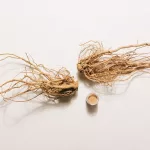When you inhale, allergens, viruses, dust, and other particles cling to your nasal mucus, which is then expelled from your body. Occasionally, your system produces an excess of throat mucus, leading to the need for frequent clearing.
Mucus is created in the nose or by the lower airways in reaction to inflammation. It’s generated by the mucous membranes that extend from the nasal passages down to the lungs.
Its role is to shield your respiratory tract by lubricating and filtering it. Mucus that’s brought up by coughing is commonly called phlegm.
Keep reading to find out what leads to increased mucus production in your throat and what you can do about it.

Why do I feel like there’s mucus stuck in my throat?
Several medical issues can spark overproduction of throat mucus, including:
- acid reflux
- allergic reactions
- asthma
- infections like the common cold
- pulmonary conditions such as chronic bronchitis, pneumonia, cystic fibrosis, and COPD (chronic obstructive pulmonary disease)
Excessive throat mucus can also be caused by certain lifestyle choices and environmental factors, such as:
- a dry indoor setting
- inadequate fluid intake
- drinking lots of diuretic beverages, such as coffee, tea, and alcohol
- some medications, for example certain hormonal contraceptives and ACE inhibitors like lisinopril
How can I get rid of mucus in my throat?
If producing too much throat mucus becomes frequent and bothersome, talk with your healthcare provider for a thorough evaluation and a treatment strategy.
What medications work best for mucus in the throat?
Your clinician might advise over-the-counter remedies. These can include expectorants like guaifenesin (Mucinex, Robitussin), which help thin and loosen mucus so it can be expelled from your throat and chest. Treatments for acid reflux or allergies may also be recommended.
Your healthcare provider could prescribe mucolytic agents as well. Examples are hypertonic saline (Nebusal) and dornase alfa (Pulmozyme), which thin mucus when administered via a nebulizer.
If a bacterial infection is behind the extra mucus, antibiotics will likely be prescribed.
Are there home remedies for mucus in the throat?
Your doctor may also recommend self-care measures to help reduce mucus, such as:
- Gargle with warm salt water: This simple remedy can help remove mucus from the back of your throat and may reduce germs.
- Use saline irrigation: Cleanse your nasal passages with a saline spray or a neti pot solution.
- Humidify the air: Adding moisture to the environment can help keep mucus thin.
- Stay well hydrated: Drinking enough fluids, especially water, helps loosen congestion and promotes mucus flow. Warm beverages can be soothing; avoid caffeinated drinks.
- Elevate your head: Lying flat may make mucus feel like it’s pooling at the back of your throat.
- Avoid decongestants: While they dry secretions, they can sometimes make mucus reduction harder.
- Steer clear of irritants, fragrances, chemicals, and pollution: These can inflame mucous membranes and prompt more mucus production.
- If you smoke, try to quit: Stopping smoking is beneficial, particularly for chronic lung conditions such as asthma or COPD.
- Try certain foods: Garlic, radishes, and fiber-rich fruits like apples may help decrease mucus. Conversely, avoid high-fat or dairy-heavy foods, which can worsen phlegm.
Learn more: How to get rid of phlegm: Tips, home remedies, and medications to try.
When should I be concerned about mucus in my throat?
Having phlegm or mucus doesn’t automatically mean something serious. It’s a way your body clears irritants from your throat and nasal passages.
However, if coughing it up doesn’t improve the situation, it could indicate an infection or another underlying issue.
See your doctor if you experience any of the following:
- Your mucus isn’t resolving
- Your mucus is becoming thicker
- The amount of mucus increases or its color changes
- You have a fever
- You have chest pain
- You’re short of breath
- You’re coughing up blood
- You’re wheezing
These symptoms might point to more serious illnesses like pneumonia, COPD, influenza, or COVID-19.
»MORE:Get an online treatment plan for your cold, flu, or sinus infection in as little as 15 minutes with Optum Perks Online Care.Optum Perks is owned by RVO Health. By clicking on this link, we may receive a commission. Learn more.
Takeaway
Your body continually produces mucus. Excess mucus in the throat is often due to a minor illness that typically resolves on its own.
However, persistent excess mucus can indicate a more serious problem. Consult your healthcare provider if:
- excess mucus is ongoing and recurring
- the volume of mucus rises significantly
- the extra mucus is accompanied by other worrying symptoms






















Leave a Reply
You must be logged in to post a comment.